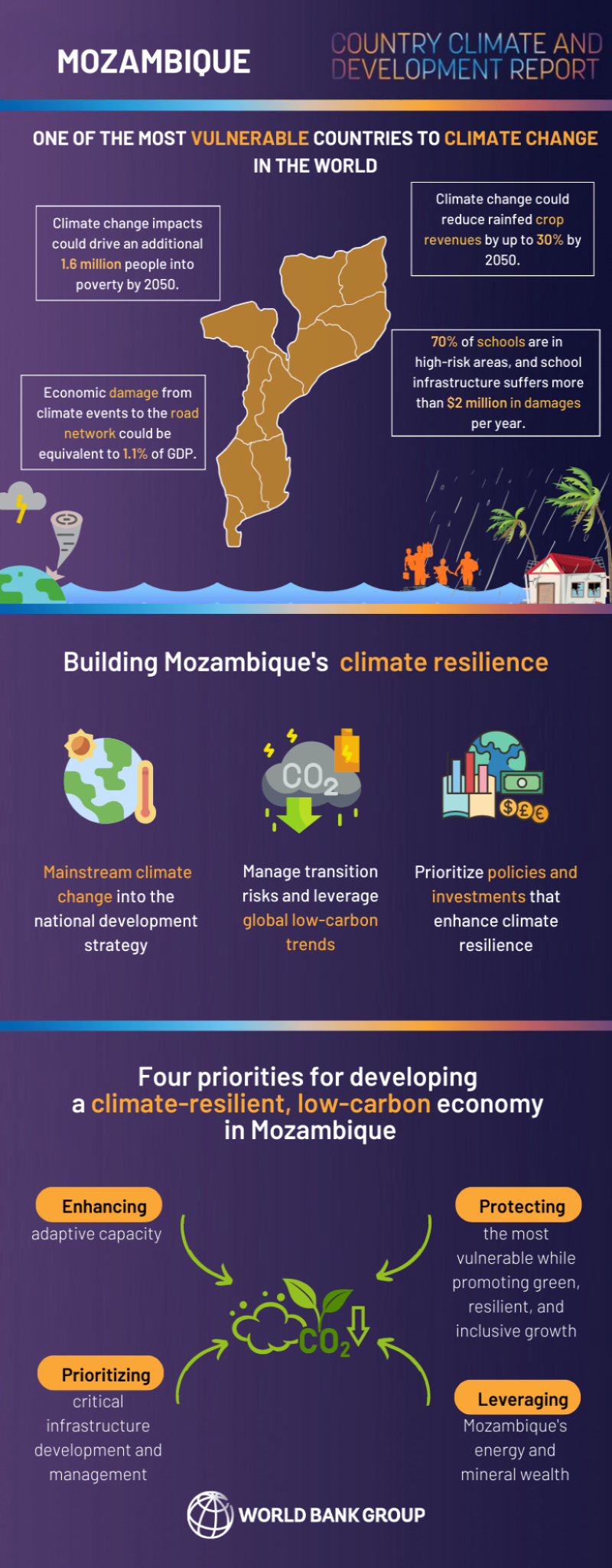Highlights:
According to the report, Climate change impacts could drive up to 1.6 million additional people into poverty by 2050, further compounding drivers of fragility across most of the country.
The report outlines four priorities to boost climate adaptation, build resilience, and foster low-carbon growth in a context of tight fiscal space: (I) adopting economy-wide measures to enhance the country's capacity to adapt to climate change, (II) prioritizing critical infrastructure development and management, (III) protecting the most vulnerable while promoting green, resilient, and inclusive growth, and (IV) leveraging Mozambique's energy and mineral wealth.
Chapter 4.1.1 focuses in strengthening the resilience of agriculture system.
Key interventions to strengthen resilience in agriculture until 2026, including investments in irrigation infrastructure, all at a cost of US$ 1.2 billion, are as follows:
- Productive territorial planning: Based on the National Development Plan (PNDT) zoning will be supported at provincial/district levels to manage the trade‑off between increasing agricultural production and potentially increasing exposure to climate risks, and conservation of natural capital (forests, key biodiversity areas, watersheds) to build greater resilience to climate change.
- Irrigation development: Investments to increase uptake of irrigation systems benefitting 1.2 million producers by 2025, to increase agricultural production while addressing climate variability.
- Improved climate information for farmers: provide seasonal climate outlooks by agro‑climate zone to allow farmers to adapt to climate variability through the development of tools to easily reach farmers and disseminate information (for instance, a database to consolidate relevant information, such as the planned, CUPA, ICT and other tools to reach rural farmers and communities).
- Improved integrated water, pest, and landscape management practices: supporting integrated farming systems (including crops, water, livestock, forests, and restoration of degraded lands) and climate smart agriculture (CSA) practices with a focus on diversification of livelihoods and increased value addition to strengthen resilience.
Given Mozambique’s high vulnerability to climate impacts, additional consideration should be given to increasing the uptake of climate risk insurance products.

| Year of publication | |
| Geographic coverage | Mozambique |
| Originally published | 05 Dec 2023 |
| Related organisation(s) | World Bank |
| Knowledge service | Metadata | Global Food and Nutrition Security | Climate extremes and food security | Climate-smart agriculture |
| Digital Europa Thesaurus (DET) | policymakingadaptation to climate changedisaster risk reductionClimate change mitigationresiliencepoverty |
